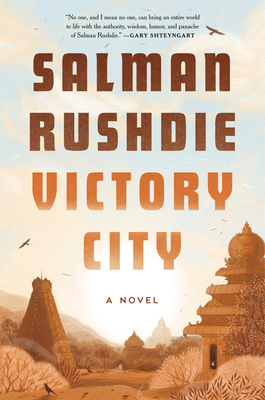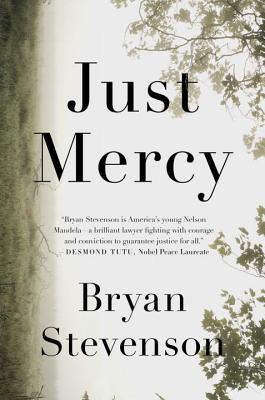Books
Summer 2023 Book Recommendations

Victory City by Salman Rushdie
Salman Rushdie's latest book is a historical fiction about the city of Bisnaga (based off the medieval Indian empire and city of Vijayanagara which translates to the 'City of Victory'). The protagonist is Pampa Kampana, a queen who lives for hundreds of years and is the creator of and a witness to the rise and fall of the city. The story is told as the summary of an epic poem of 24000 verses that was found well after Pampa Kampana's - and the empire's - end. Bisnaga starts off as a sort of equitable utopia - where men and women, Hindus and Muslims, locals and foreigners are all equal. However, there are intriguing aspects to how she, the creator of Bisnaga, can never become its monarch because of her gender but instead has to exercise power via a consort who sits on the throne. And over the decades of Pampa Kampana's life, the kingdon goes from utopia to an illiberal political mess riven by conflict. The book is very loosely historical and mostly fantasy but has several interesting characters like the cowherd brothers Hukka and Bukka both of whom Pampa Kampana marries. Later, she also marries a Portuguese trader with whom she has a son. It is quite a story and runs the arc of Bisnaga from founding to ruin and leaving behind the sentiment, as Pampa Kampana puts it that "words are the only victors".

Whole Numbers and Half Truths by Rukmini S.
Part of the appeal of this book for a data geek like me was the sub-title "What Data Can and Cannot Tell Us About Modern India". In this book, Rukmini who is a data journalist, sifts through reams and reams of data collected by various statistical bodies in the country and tries to both glean insights but also to call out how things aren't always what they seem to be. Rukmini looks at varies aspects of the country from the justice system to voting to religion to marriage to money to education. Things that stood out for me were the stat that fully 95% of the people never move out from the city or town of their birth! Another counter-intuitive learning was that a surprisingly large share of the reported sexual assaults in the country are actually not assaults - they are in fact consensual relationshipos between adults! But because of differences in caste or religion, the parents file these cases in the hope of breaking up the relationship. She gets to this conclusion by studying nearly 600 judgements in Delhi's district courts. In a different part of the book, she finds the religious divide - while exploited by political parties - is also well entrenched in the population itself. Large majorities of both Hindus and Muslims (and others) are against inter-religious marriages. This is a thoroughly researched book and is full of way too many insights that a short review can do justice to. It read like a Pew Research article in a full book length form I hope there will be a sequel to it!

Just Mercy by Bryan Stevenson
I learned about this wonderful book from a work colleague who donated their time to the Equal Justice Initiative. The EJI was founded by the author of this book, the lawyer Bryan Stevenson. EJI is a non-profit that provides legal representation to prisoners who may have been wrongly convicted of crimes, poor prisoners without effective representation and others who may have been denied a fair trial. The book is a memoir of Stevenson's work with the EJI and the many cases he has worked on some of which can really break your heart. Oftentimes years and years of work go into taking a man off death row. And then it is more effort to get them declared innocent altogether. The progress with techniques like DNA have made a huge difference no doubt but frequently the final result seems to depend as much on the prosecutors who can either choose to fight and prolong a case or come to an agreement sooner. It is a powerful book that will make you think about the criminal justice system in the United States and the many ways in which it is broken. It is a book that will make you angry and sad but also hopeful and inspired. It is a book that will make you want to do something. This 2014 book was also made into a movie in 2020 starring Michael B. Jordan as Stevenson and Jamie Foxx as Walter McMillian, one of the prisoners Stevenson represented.

Indian Summer by Alex von Tunzelmann
I will confess my reaction to the very beginning of this book was a huge "Wait! WHAT!??" when the author started off on a stunningly un-self-aware and discordant note making it sound like the British left India entirely of their own goodwill as if the past hundreds of years of battles and revolt and bloodshed of the freedom movement or the last few decades of Mahatma Gandhi's non-violent struggle had nothing at all to do with their exit. Or the horrors of partition that took hundreds of thousands - if not millions - of lives in a mere few months. von Tunzelann's characterization of an entirely voluntary and generous riding off into the sunset by the British is so far from the established truth that I despaired at first. I only persevered because I came by this book via the excellent Empire podcast that I've recommended before. This is the story of the last few weeks and months before Indian independence in August 1947. It tells the story of the tragedy of partition and the behind the scenes interactions and conversations of three primary players: the British (via Lord Mountbatten), the Congress (via Jawaharlal Nehru), and the Muslim League (via Muhammad Ali Jinnah). It is a fascinating story and one that I did not know much about. It also brings out the 'special relationship' Lord Mountbatten and especially Lady Edwina Mountbatten had with Nehru and how this both lead to rumors of an affair but also more consequentially, to fears from Jinnah that Nehru and therefore India were getting preferential treatment. The book does acquit itself well and I recommend it if you are interested in the history of India and specfically the events leading up to 15th August, 1947.

Return of a King by William Dalrymple
William Dalrymple has become a staple on my recommendation lists - and for good reason! Dalyrmple's deeply researched book tells the tale of the 19th century British invasion of Afghanistan and its aftermath. This invasion turns out not to be for the territory of Afghanistan itself nor for any treasure it contained but to create a buffer area between Russia and the 'jewel of the crown' India. This therefore is the story of the opening acts of the 'Great Game', a bitter rivalry between the pre-eminent powers of the era - Britain and Russia - and the moves and countermoves they make on the central asian chessboard to protect territory or attack each other. To this end, in 1839, the British (or more accurately the East India Company) overthrow the Afghan ruler Dost Mohammad and replace him with by Shah Shuja. Shah Shuja himself has been living in exile for decades at that point having been overthrown by Dost Mohammed and his brother. By installing Shah Shuja as the new ruler they expect him to be a pliant puppet and do their bidding. A great many events transpire which the throroughly researched book goes into but suffice to say, the big idea doesn't work out as planned and Afghan resistance to the British occupation grows. The British are finally forced to retreat and the retreat turns into a rout ending in a bloody massacre. Now Dost Mohammed returns! With the support of the British! Does this sound vaguely familiar? It should. After the British loss in the 19th century, the Russians invaded Afghanistan in the 20th century (1979) with disastrous results And of course in the wake of 9/11, the US invaded in 2001. Another bloody occupation of the 21st century that finally ended with the US handing power right back to the Taliban in 2021, the very organization they came to fight. I was reminded of the extraordinary final images of US military planes taking off from Kabul airport with people literally clinging to the underside and wheels of the plane in a desperate effort to flee. With all these historical echoes it makes for fascinating reading. Not for nothing is Afghanistan called the graveyard of empires.